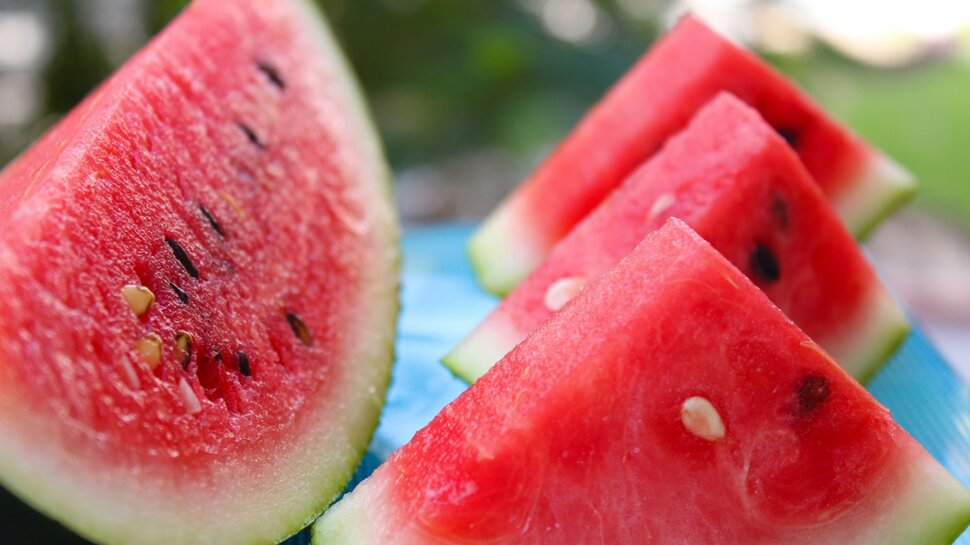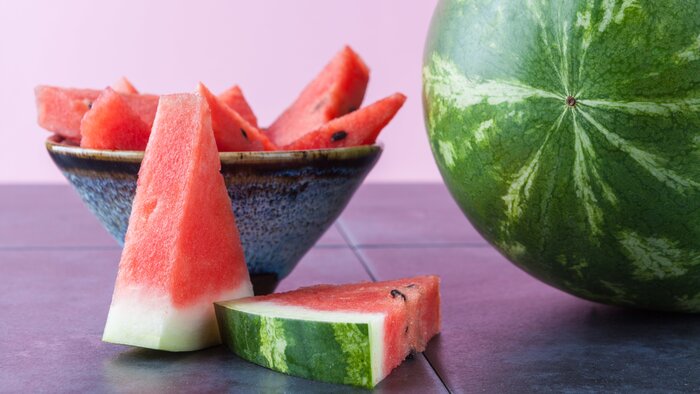Watermelon Nutrition: How Much Nutrition Is In Watermelon?
Watermelon is a delicious and refreshing fruit that is synonymous with summertime and picnics. With its vibrant green rind and juicy, sweet flesh, watermelon has become a favorite treat for many people around the world. This tropical fruit is believed to have originated in Africa and has been cultivated for thousands of years.
Watermelons are known for their high water content, making them incredibly hydrating, especially during hot weather. They are also packed with essential nutrients, including vitamins A and C, which help support a healthy immune system. Additionally, watermelon contains lycopene, a powerful antioxidant that has been linked to various health benefits, including heart health and reducing the risk of certain cancers.
The sheer size of watermelons makes them perfect for sharing with friends and family. They can be enjoyed in various ways, such as sliced into wedges, diced into refreshing fruit salads, or blended into refreshing smoothies. Some people even enjoy grilling watermelon slices to bring out a unique flavor profile.
So, whether you're enjoying a juicy slice at a backyard barbecue or savoring a chilled watermelon popsicle on a hot summer day, this delightful fruit is sure to bring a burst of sweetness and refreshment to your taste buds.
Watermelon Calories: How Many Calories Are in Watermelon?

Watermelon is a low-calorie fruit that is perfect for those who are watching their calorie intake. A 1-cup serving of diced watermelon contains only 46 calories, making it a great option for those who want to indulge in a sweet treat without consuming too many calories.
Watermelon Nutrition Facts: What Are the Nutrients in Watermelon?
Watermelon is packed with essential nutrients that can benefit your health. One cup of diced watermelon contains 21% of the daily recommended value of vitamin C and 18% of the daily recommended value of vitamin A. It is also a good source of potassium, magnesium, and dietary fiber.
Watermelon Nutrition: Why Is Watermelon Good for You?
Watermelon is good for you because it is low in calories and high in essential nutrients. It is also a good source of antioxidants, which can help to protect your body against damage from free radicals.
Watermelon Carbs and Calories: How Many Calories And Carbs In Watermelon?

One cup of diced watermelon contains 11 grams of carbohydrates, making it a great option for those who are following a low-carb or keto diet. It also contains only 46 calories, making it a great choice for those who are watching their calorie intake.
Serving Size of Watermelon: How Much Watermelon Should You Eat?
The serving size of watermelon is typically one cup of diced fruit. However, you can adjust the serving size to fit your needs and dietary preferences.
How To Pick Good Watermelon?
Picking a good watermelon can be tricky, but here are some tips to help you choose the best one:
Look for a uniform shape: A good watermelon should be symmetrical and uniform in shape. If it looks lopsided, it may indicate that the fruit did not get enough sun or water.
Check for a yellow spot: On the bottom of the watermelon, there should be a creamy yellow spot. This indicates that the watermelon has ripened fully on the vine.
Tap it: Give the watermelon a tap or knock on its surface. You should hear a hollow sound, which indicates that it is ripe and juicy.
Check the weight: A good watermelon should feel heavy for its size. This indicates that it is full of water and is ripe.
Look for a dull skin: A shiny skin may indicate that the watermelon is underripe, while a dull skin indicates that it is ripe and ready to eat.
Check for uniform color: A ripe watermelon should have a uniform color, with no white or pale green areas.
By using these tips, you can ensure that you pick a delicious and ripe watermelon that will be juicy and sweet.
How Many Carbohydrates in Watermelon: Is Watermelon Low in Carbs?
Watermelon is relatively low in carbohydrates, making it a suitable choice for those following low-carb or keto diets. The exact carbohydrate content of watermelon can vary slightly depending on factors such as the variety and ripeness of the fruit. On average, watermelon contains about 7-8 grams of carbohydrates per 100 grams (3.5 ounces) of fruit.
The majority of the carbohydrates in watermelon come from natural sugars, primarily fructose. However, watermelon has a relatively low glycemic index, which means it does not cause a significant spike in blood sugar levels compared to high-carbohydrate foods. This is mainly because watermelon has a high water content and is also a good source of fiber, which helps slow down the absorption of sugars.
Considering its low carbohydrate content and high water content, watermelon can be enjoyed in moderation as part of a balanced diet. It provides a refreshing and hydrating option, especially during hot summer months.
Sodium Content in Watermelon: How Much Sodium Is In Watermelon?
Watermelon is naturally low in sodium, which makes it a suitable choice for individuals who need to limit their sodium intake. Sodium is an essential mineral that plays a vital role in various bodily functions, but excessive sodium consumption can be detrimental to health, particularly for individuals with certain medical conditions like high blood pressure or kidney issues.
In the case of watermelon, its sodium content is quite minimal. On average, watermelon contains less than 1 milligram of sodium per 100 grams (3.5 ounces) of fruit. This amount is considered negligible and can be safely consumed by most individuals, even those following a low-sodium diet.
Watermelon is known for its high water content, which helps with hydration and can contribute to flushing out excess sodium from the body. It is also a good source of potassium, another essential mineral that helps balance sodium levels and supports heart health.
Nutrition Info on Watermelon: What Else Should You Know?
In addition to its low calorie and carb content, watermelon is also a good source of hydration, as it is made up of 92% water. It is also a great option for promoting digestive health, as it is a good source of dietary fibre.
Is Watermelon Good For You?
Yes, watermelon is good for you and offers several health benefits. Here are some reasons why watermelon is considered a healthy fruit:
Hydration: Watermelon has a high water content, which makes it an excellent fruit for staying hydrated, especially during hot weather or intense physical activity.
Nutrient-rich: Watermelon is packed with essential vitamins and minerals. It is a good source of vitamins A and C, which are important for a healthy immune system and cell function. It also contains small amounts of vitamins B6 and potassium.
Antioxidant properties: Watermelon contains lycopene, a powerful antioxidant that gives it its vibrant red color. Lycopene has been associated with various health benefits, including reducing the risk of certain cancers and promoting heart health.
Heart health: The combination of vitamins A, C, and lycopene in watermelon may contribute to heart health. Lycopene has been linked to lowering blood pressure and reducing oxidative stress, both of which are important factors in maintaining a healthy cardiovascular system.
Hydration for skin: The high water content and hydrating properties of watermelon can also benefit the skin, keeping it moisturized and supple.
Digestive health: Watermelon contains a decent amount of fiber, which aids in digestion and promotes regular bowel movements.
Low in calories: Watermelon is relatively low in calories compared to other fruits, making it a satisfying and refreshing option for those watching their calorie intake.
However, it's important to remember that moderation is key. While watermelon is a healthy fruit, it does contain natural sugars, so it's advisable to consume it in reasonable portions as part of a balanced diet. If you have specific dietary concerns or medical conditions, it's always a good idea to consult with a healthcare professional or registered dietitian for personalized advice.